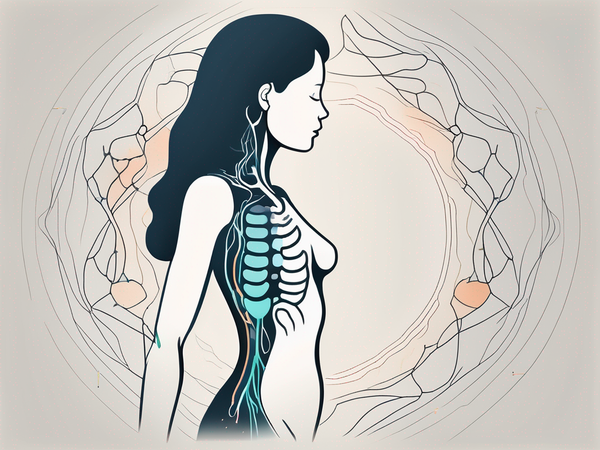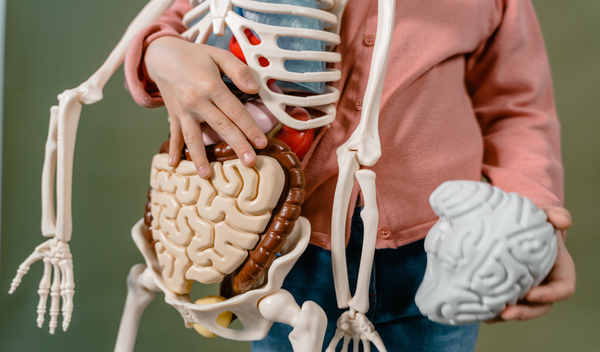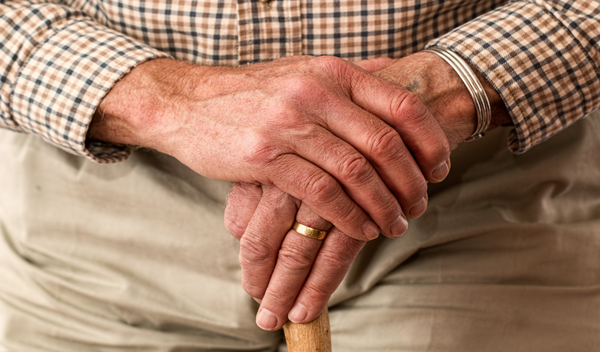One of the common struggles of every generation is dealing with bone health issues after a particular age. Blame our sedentary lifestyle, eating habits, family history, or fluctuating hormones. What is concerning is that the age factor for developing bone-related problems is decreasing day by day. The bone degenerative disorders that our grandparents or parents started to develop past the age of 50, we have started experiencing them in our early 40s or even 25 and 30s for some. While we cannot control certain genetic factors, lifestyle modifications like a healthy diet and specific exercise can definitely help strengthen our bones and delay the onset of degenerative bone changes. In this article, we will explore five research-backed bone-strengthening exercises that you can easily incorporate into your daily life. We will also discuss the role of bone supplements and vitamins for bones in supporting bone health.
Importance of Bone Health
Bones are a part of our skeletal system that serves as the structural framework of our bodies, providing support and protection to vital organs. Additionally, bones are a reservoir for essential minerals like calcium and phosphorus, which play a crucial role in various bodily functions, including muscle contractions, blood clotting, and nerve transmission.
Role of Exercise in Bone Health
As we age, our bone density naturally declines, making our bones more susceptible to fractures and osteoporosis. Osteoporosis is a condition characterized by fragile bones, which can lead to debilitating fractures, especially in the hip, spine, and wrist. However, regular exercise can significantly help combat this decline in bone density.
Research has consistently shown that weight-bearing and resistance exercises are instrumental in promoting bone health. Weight-bearing exercises involve activities that require you to support your body weight. Resistance exercises, on the other hand, involve activities that use resistance to build muscle strength.
When you engage in weight-bearing and resistance exercises, you stress your bones, prompting them to adapt and become stronger. This process stimulates the production of bone-forming cells, increases bone density, and enhances bone architecture. Thus, regular exercise can help build and maintain strong bones.
We’ve listed down 5 daily bone-strengthening exercises for you.
-
Weight-Bearing Exercises
Weight-bearing exercises are among the most effective ways to strengthen bones. These exercises involve bearing your body's weight while engaging in activities like walking, jogging, dancing, or playing sports. Research has consistently shown that weight-bearing activities stimulate bone remodeling, leading to increased bone density.
Weight-bearing exercises create stress on the bones, prompting them to adapt and become denser over time. This increased bone density can help prevent osteoporosis and reduce the risk of fractures.
Examples:
- Brisk walking
- Dancing
- Jogging
- Tennis, badminton, pickleball, and ping pong
- Hopscotch
- Jogging/Running
- Basketball/Volleyball/Soccer
-
Resistance Training
Resistance exercises use mechanical resistance from weight bearings such as resistance bands and weights. Adding resistance helps the muscles release calcium, magnesium, and other bone-strengthening minerals. Resistant band exercises are best for someone who is a beginner or has joint issues. Different colored resistance bands indicated the level of intensity. It is always recommended to go gradually from a moderate level to a higher resistance. Pushups can be done in different ways. Standing ones include facing the wall 3 cm away, while seated pushups can include holding a lightweight pole or broomstick. While a band pull can be done in both standing and seated positions.
Examples:
- Resistance band exercises
- Pushups: Standing & Seated Pushups
- Band Pull
-
Balance and Core Exercises
Balance and core exercises are essential for building stronger bones. It helps improve posture, stability, and bone density. These exercises challenge the body's balance, forcing bones to adapt and strengthen, reducing the risk of fractures and osteoporosis as we age.
Examples:
- Yoga
- Pilates
- Stability Training-leg stand
-
Flexibility exercises
Flexibility exercises play a vital role in enhancing bone strength. It increases joint mobility and reduces the risk of falls and fractures. They also promote better circulation, which aids in delivering essential nutrients to bones, ultimately contributing to stronger, healthier skeletal structures.
Examples:
- Yoga
- Tai Chi
- Stretches- Hamstring and shoulder stretches
-
Bodyweight exercises
They are effective for building stronger bones. These weight-bearing activities stimulate bone density while also enhancing muscle strength and balance. They can be easily incorporated into daily routines, making them accessible and beneficial for individuals of all fitness levels, promoting better bone health.
Examples:
- Push-ups
- Squats
- Lunges
- Planks
Vitamins & Bone Supplements for strengthening bones
-
Calcium
Calcium is one of the most popular minerals in bone supplements. Maintaining a sufficient quantity of calcium in the circulation is crucial because bone density declines with age (as bone breaking outpaces bone creation). By supplying sufficient dietary calcium or calcium through bone supplements, you can promote long-term bone health as it combines with other minerals to form hard crystals imparting strength and structure to bones. -
Vitamin D
Gradually, Vitamin D is getting its due fame for maintaining bone health alongside calcium. Vitamin D plays a crucial role in calcium absorption, making it essential for bone health. Adequate sun exposure and dietary sources like fatty fish and fortified foods can help, you may even require vitamin D supplements
If you have a severe deficiency or live in areas where sun exposure is limited.
-
Vitamin K
Not just vitamin D but Vitamin K also plays an essential role in providing direct entry of calcium into the bones and aids in bone mineralization. Leafy green vegetables like kale and spinach are excellent dietary sources of vitamin K. -
Magnesium
A mineral that promotes bone health is magnesium, which helps with calcium absorption and bone growth. It can be obtained through dietary sources like nuts, seeds, and leafy greens, and dietary supplements.
-
Bone Supplements
In today's digital age, accessing bone supplements online has become more convenient than ever. You can find a wide range of bone supplements and vitamins for bones at your fingertips. Some of these supplements contain essential components like collagen and hyaluronic acid, which also play a critical role in strengthening the bones.
Wrapping Up
Don't let your achy bones come in the way of your trekking goals in the future. Whether you want to prevent those age-related bone issues or simply maintain optimum health of your bones. Do try the above-listed bone-strengthening exercises for the best of your bone health. You may also take assistance from bone supplements but do check with your orthopedic once before starting a new exercise program or supplement regimen.
References
https://orthoinfo.aaos.org/en/staying-healthy/exercise-and-bone-health/
https://www.gaucherdisease.org/blog/how-to-build-bone-density/
https://www.health.harvard.edu/staying-healthy/the-best-exercises-for-your-bones
https://www.health.harvard.edu/womens-health/exercises-for-bone-strength

























